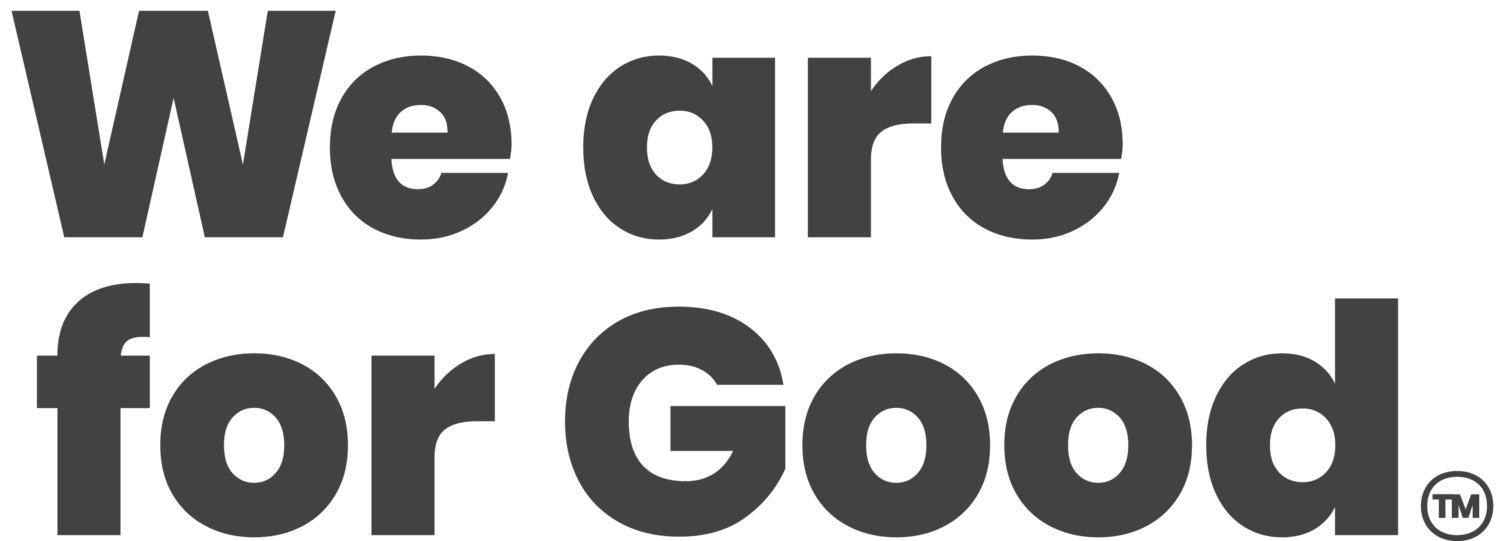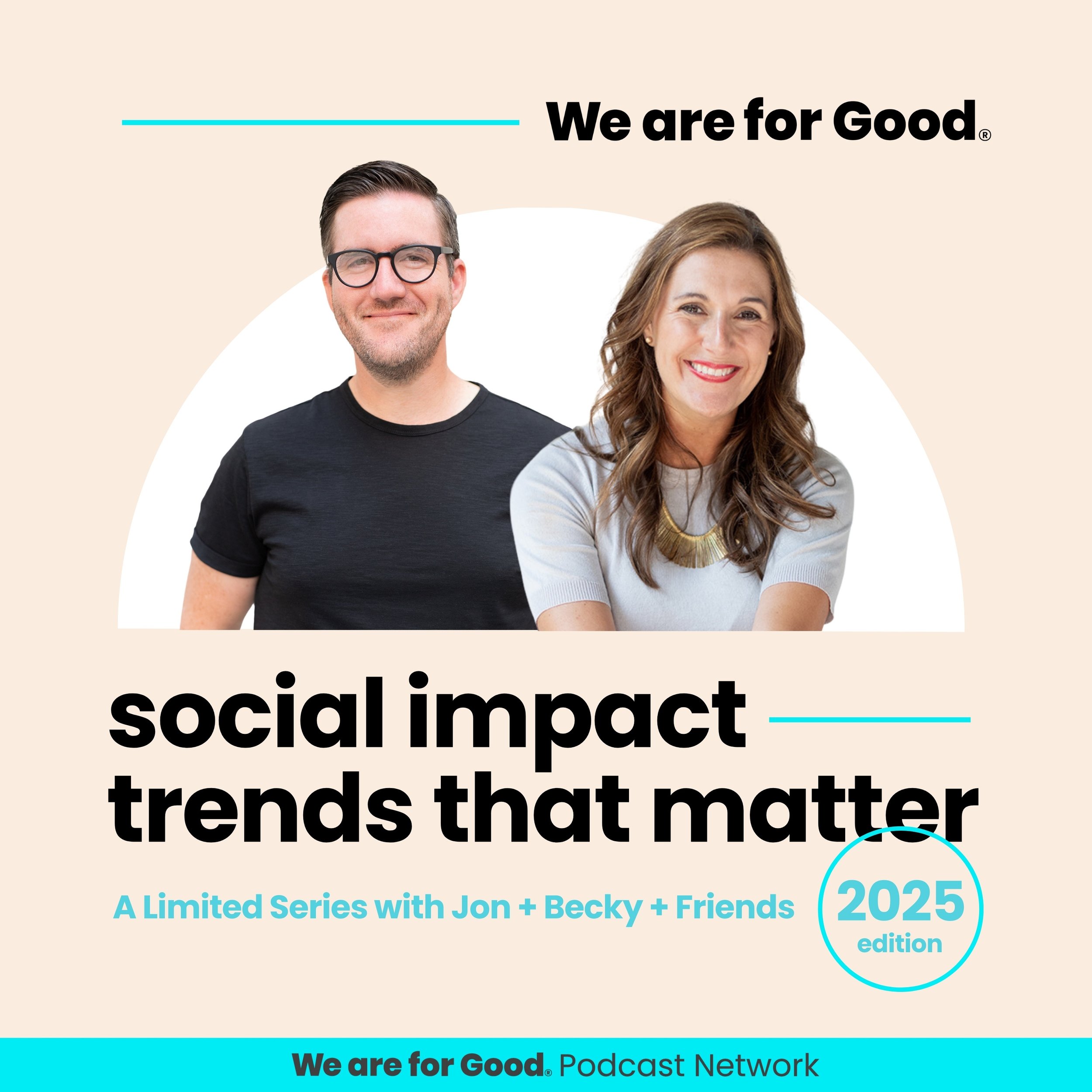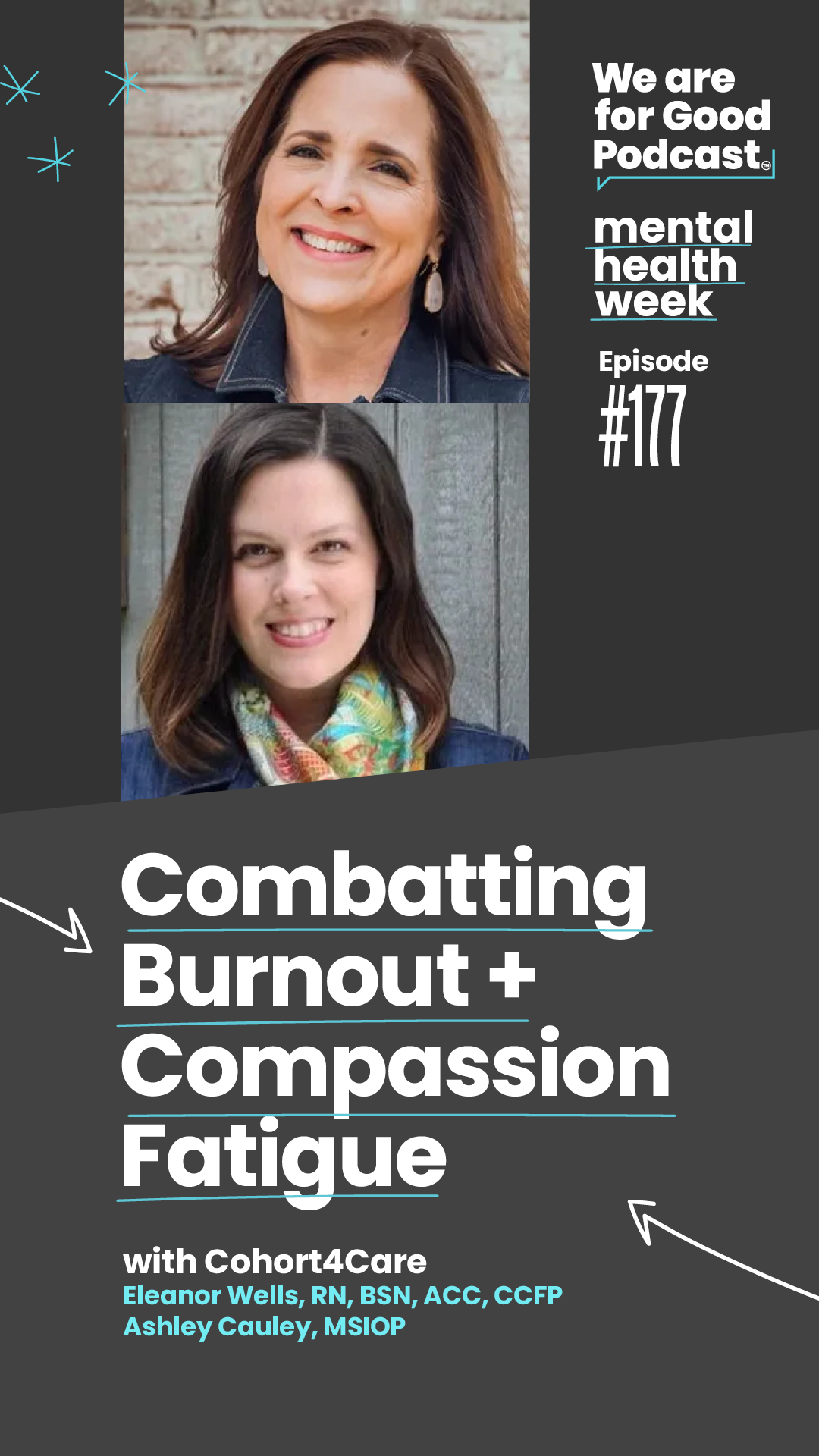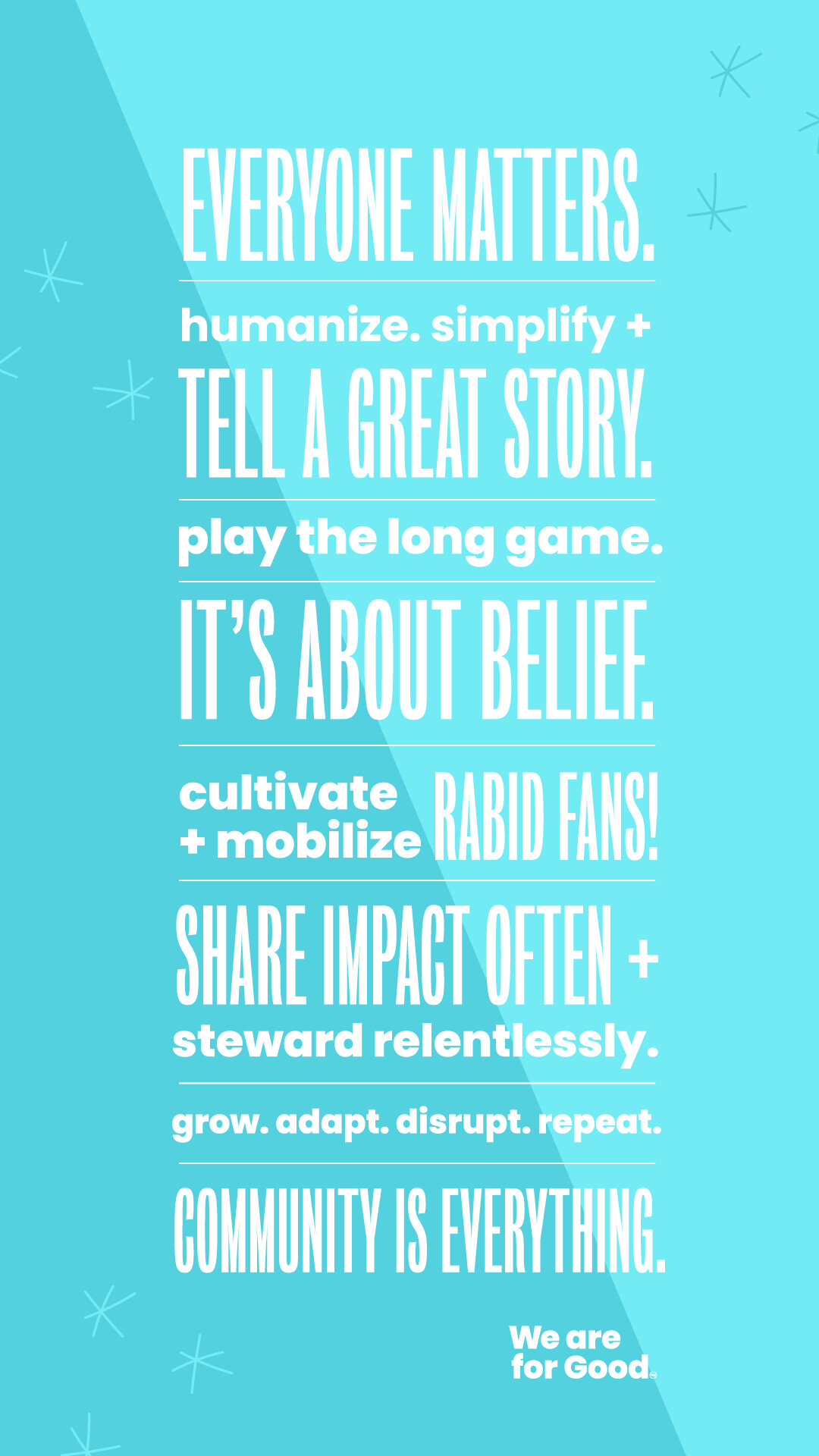177. Combating Burnout and Compassion Fatigue - Eleanor Wells and Ashley Cauley
Today’s episode is part of a 5-day Mental Health Week series on the We Are For Good Podcast. Explore the other episodes and resources here.
Listen to this episode
Overview
Meet Eleanor and Ashley. One's a nurse and personal coach and the other is an organizational psychologist and educator. Put them together - WOW - they may just be the most powerful mental health team in our sector (and they've got loads of resources to help too.)🤝❤️👊 They're talking us about how to assess, treat, and prevent burnout, and breakdown what it means to have psychological safety. If you're looking for some guidance to help your team or yourself - tune in.
Today’s Guest
Eleanor Wells, RN, BSN, ACC, CCFP
Ashley Cauley, MSIOP
Co-Founders, Cohort4Care
“What we really want people to realize and remember is self care is not selfish, but it also does not happen by yourself.”
Episode Transcript
Download Full Episode Transcript Here
Episode highlights
Eleanor and Ashley’s stories and journeys to where they are today (1:46)
Current stats around burnout and compassion fatigue (4:00)
The difference between compassion fatigue and burnout (6:30)
Combating compassion fatigue and burnout: where to start (11:00)
Cohort4Care’s GRIPP Model: How to assess, treat, prevent compassion, fatigue and burnout (13:00)
Creating cultures where people can have good well being (22:00)
Fostering psychological safety in our organizations (26:00)
Powerful moments of philanthropy in Eleanor and Ashley’s lives (37:00)
Eleanor and Ashley’s One Good Thing: Self care is not selfish. (41:00)
Powerful quotes
“So I did a lot of volunteering and work with nonprofits, really my whole life, and have had such a wonderful opportunity to be on the front line, whether it's a volunteer or a board member or even as an employee, with lots of ministry and nonprofit organizations and really tapped into what this burnout and compassion fatigue was.” -Eleanor
“When we first started talking about doing Cohort4Care and discussing the need for a coaching consulting group that can work with organizations with compassion, fatigue and burnout. It was really coming from a place of experience or we had either experienced this firsthand or witnessed this our entire lives.” -Ashley
“We've all experienced this firsthand, we've witnessed this firsthand, we understand the pain, from compassion, fatigue, and burnout.” -Ashley
“We see that compassion fatigue can lead to greater effect on those that are in what we call “caring professions”, and that's going to be people in the nonprofit sector, educators, people in ministry, social workers, people in the medical field.” -Ashley
“When I came across this young woman and met her. I found a woman who had lost her passion. She was tired. She was cynical. She was angry. Her co workers really didn't even like to be around her anymore. She She lost her sense of humor. She She even was suffering with some physical ailments and had developed an autoimmune disease.” -Eleanor
“Burnout comes from work conditions, things like overworked, underpaid, understaffed, don't feel qualified to do the job.” -Eleanor
“You may not personally be experiencing the trauma, you're seeing it and you're witnessing it. But your body doesn't know that. It doesn't know this isn't my trauma.” -Eleanor
“when you really think about it, who works in nonprofits, it's people who care, who want to be involved, who see a problem, who want to fix it, who want to treat it, who want to be a part of it. So it's so easy for those type of individuals to take on the stories of what they're hearing. It's that's what makes them good at what they do, because they're so interrelated.” -Eleanor
“The first step, when you realize you're suffering from this is you must reach out. Fortunately, because there is so much discussion around this right now, I truly do feel that organizations are making an effort to have a place to have opportunity for people I've been hearing of organizations that are offering free counseling someone to listen, and unfortunately, a lot of people aren't actually taking advantage.” -Ashley
“We can't heal hidden pain, we can only heal open pain. So yes, we start with a grieving process.” -Ashley
“So many times what we're seeing and reading about and compassion fatigue and burnout is just get a self care plan and do so you know, go get a massage and you'll be fine you know, get a manicure once a week, you'll be okay. And that's just not the truth. I mean, it's that's part of it. But that's that's not all of it.” -Eleanor
“We need to create cultures where people have the ability to have good well being.” -Eleanor
“We have to back up and realize that the definition of psychological safety is really being able to bring in who you are to your workplace, without fear of backlash, without fear of suffering, any negative consequences, because you brought who you were, you spoke up, you ask questions, you were innovative, you took a risk, you don't feel as though you were unsafe to do those things.” -Ashley
“We have got to get to the heart of the matter first, even though it is difficult and painful. So this, this actionable step really strikes the heart of that grief. And it is what I call learning how to sit quietly with pain, which is very difficult for us to do, especially those in the caring professions.” -Ashley
“We must learn to listen for compassion, not to fix it.” -Ashley
“My dad had the real gift of giving and and I watched him my whole life. Be the one that would if someone had a need, he was going to be the one that made it. And he did it very quietly. Most people didn't know what he was doing. But he was that's just who he was. And the ripple effect of that in our family has just been powerful.” -Eleanor
“What we really want people to realize and remember is self care is not selfish, but it also does not happen by yourself.” -Eleanor
connect with cohort4care
connect with eleanor
Connect with Ashley
Rate, Review, & Follow on Apple Podcasts
Are you a fan of the We Are For Good Podcast? Please consider rating and reviewing our show! This helps us serve more do-gooders — just like you — grow their own impact uprising.
First time doing reviewing a podcast? Don’t sweat - it’s super easy! Click here, scroll to the bottom, tap to rate the show with stars, and then click “Write a Review.” We’d love to hear what you loved most about this episode!
While you’re there, if you haven’t done so already, would you consider subscribing to the podcast? We curate inspiring conversations weekly to help you do more for your mission (and the occasional surprise minisode too!) and if you’re not subscribed, you could totally out. Subscribe now!
Join the Good Community!
The We are for good community
This is a safe place for deeper conversations. While we love this podcast, it is a very one-sided dialogue. It is great for starting conversations, but not continuing them. You can find friends, colleagues, and others to champion alongside. We believe community is everything and we wanted to create a place where people could learn and thrive and grow together (and also have a whole lot of fun).
About our Sponsor Givebutter
Givebutter is Loved by over 35,000 nonprofits, student groups, sports teams, schools, companies, and individuals just like you, and PS: it’s also loved by the three of us who are superfans of their incredible giving platform. 💛
Givebutter powers more than 35,000 good causes with their end-to-end fundraising solution - and we love it because it's completely free.
Givebutter empowers missions across the country and those on the frontlines of de-stigmatizing mental health, like NAMI Nevada.
Throughout the pandemic, quarantine and social distancing requirements were contributing to a massive increase in anxiety and depressive disorders across their state. So NAMI Nevada put together an innovative fundraiser powered by Givebutter to introduce the greater Nevada community to ways they can move forward—no matter the circumstance they were dealing with.
They eclipsed the goal of their crowdfunding campaign and shared how much they loved Givebutter’s ease of use and the power of its human-to-human connectivity to grow their impact.
Watch the full story and interview with NAMI Nevada Executive Director here.






















